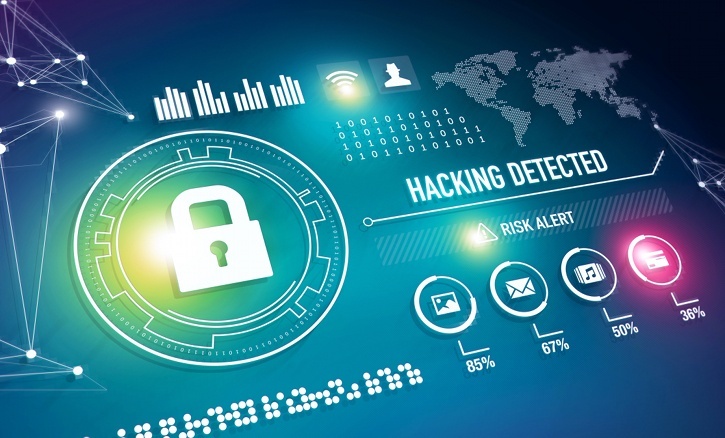It’s well-documented and well-discussed: the future of work is hybrid. While the picture of our post-pandemic work world shows many employees will come into the office some days – whether for internal meetings, client meetings, or other reasons – professionals will also spend a good amount of time working remotely.
And now, the implications of remote work on a company’s IT infrastructure and security are starting to come more to the forefront of leaders’ minds. While research and data show many of the “good” elements of remote work – employees often demonstrate higher productivity and are happier about the flexibility of their schedule which can help a company both attract and retain employees – there are many documented security risks to remote work.
These security risks are where more attention is needed. Companies must heed the warnings that are in the headlines and move cybersecurity to the top of the priority list. A proactive approach to security is critical for companies to be successful. Keeping a company’s technology infrastructure safe and secure is an essential component of a business plan and a company’s strategy.
The companies that are reactive and only make a move when a breach or cyberattack takes place do not utilize a winning formula. There is a huge price to pay on many levels after cybercriminals successfully stage an attack.
The MSP vs. the MSSP
So today we hear that many companies look to MSPs – managed service providers – to provide outsourced support.
So just what is an MSP? And is this type of company effective in warding off cybercrime?
An MSP is a company that provides outside, third-party support for technology and IT services and will typically focus on:
- Managing and monitoring a company’s IT infrastructure
- Ensuring clients have control over user access accounts, including for new employees
- Managing a company’s hardware
- Enabling employees can tap into needed systems to share information and data as required
- Troubleshooting
- Providing technical support, which likely includes training
- Security* – but only in some cases
The MSP completes some valuable tasks. A competent MSP will ensure that a company’s technology systems run smoothly. It will focus on a company’s data to make sure information is manageable and useful for employees and clients alike. And when an MSP’s client company has issues accessing data or when the technology infrastructure goes down, the MSP is there to help rectify the situation.
But you will notice we have an asterisk in the above list. Cybersecurity for most MSPs is not a big area of concern and consideration. Yes, the list above of what an MSP provides is important to every company – but to take your IT to the next level and sure that data and systems are truly safe and secure, that’s where an MSSP – a managed security services provider – comes into play.
An MSSP could be described as the fortress that protects a business, as it ensures the safety of a company’s data and information (which are among its most valuable assets). An important focus of the MSSP should come as no surprise: cybersecurity monitoring and management.
Within a company, different levels of employees have different needs when it comes to viewing information. Some need to only tap into certain data, while other employees need access to everything. The MSSP will work to develop highly secure and effective solutions so that employees can get to the data they need, while ensuring there is no access to information that their eyes should not come across.
And to take this to the next level, the MSSP will ensure that the outside world cannot access any data, information, or systems within a company.
Why should a company outsource security?
While more and more companies see the importance of cybersecurity, many do not know how to go about getting the protection they need, nor do they understand the benefits of working with a dedicated service provider.
Here are four top reasons to outsource technology security:
1. Reduced costs
An outside resource that focuses exclusively on security will almost always save a company money. It is expensive to have a dedicated and robust internal IT team; outsourcing saves a great deal on labor and training costs.
Plus, by having the right experts in place, there is a dramatic reduction in the risk of a breach. And as we know, once a breach takes place, the expense is likely enormous.
2. Access to experts who understand cybersecurity inside and out
Outsourcing to experts who focus on the latest and greatest ways to prevent cybersecurity attacks is essential to keeping a company’s systems safe and secure. The “bad guys” are becoming more sophisticated and always upping their game. A company dedicated to understanding the latest trends in cyberattacks will provide the best defense in combatting future problems, as these pros are focused on anticipating the next generation of cyberattacks.
3. Adoption of a proactive role
The best outsourced experts will ensure a company is proactive in its efforts and look to ensure problems don’t occur in the first place – this is absolutely the preferred path to take. Companies that are reactive and only respond to fixing problems once they occur pay a much higher cost in the end. It takes truly dedicated professionals to understand a company’s internal systems, determine the potential weaknesses, and anticipate cyberattacks before they happen (and this is the much-preferred approach).
4. A customized approach
Cybersecurity is not an area where a “one size fits all” approach will ever work. A “top-of-its-game” MSSP will provide a client with useful insights from a professional perspective about the strengths and weaknesses of a company’s cybersecurity (or lack thereof). This makes it easier to anticipate and guard IT systems against attacks. The best MSSPs today have been-there, done-that, and seen-it-all – which means there is a great deal of firsthand experience that then comes to each client they work with. (Advantage, client.)
Where to go from here
Today, businesses fully understand and appreciate that technology is an enabler. The right technology platform and system work together to strengthen a business and support business growth.
When it comes to having the right technology in place within an organization and ensuring the technology fully supports the business, hope is not a strategy. The technology that enables a business must work correctly, must evolve with the company as needed, and must be safe and secure.
Business leaders must devote the needed time, attention, priority status, and resources to developing and protecting internal technology systems. And in many cases, this is accomplished with the help of a dedicated outsourced team who will become your ally and partner.
Do your own research on MSPs and MMSPs. Make sure you fully understand that value that each brings to the table. And find the right partner for your company who will ensure that your company’s technology works smoothly, efficiently, and perhaps above all, safely and securely.



